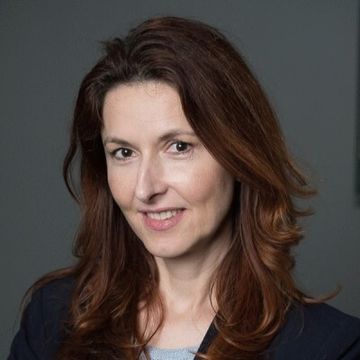Hotels have been accused of being slow to adopt new technologies for years, but last year there were signs of change, and this year the excitement has grown even louder.
Oracle is one of the beneficiaries of this trend. In the last fiscal year, the number of hotels using the Opera Cloud hospitality platform, which was launched in 2016, doubled to over 9,000.
Brands that have selected or expanded their use of Oracle’s services include Choice Hotels, EOS Hospitality, ONYX Hospitality Group, Scandic Hotels Group, Thon Hotels and VAI Resort.
Subscribe to our newsletter below
“As travel increases, hotel brands are turning to technology to stay efficient, profitable and to win the hearts and minds of guests to increase loyalty,” said Laura Calin, senior vice president at Oracle Hospitality. “Our comprehensive platform enables hoteliers of all sizes to add the features they need to achieve their unique business goals while increasing guest satisfaction.”
Calin, who was promoted to SVP this month, has been with Oracle since Oracle acquired Micros in 2014, where she worked since the 1990s – starting as a lead developer on the original Opera system. To discuss the changing landscape in the hospitality industry, PhocusWire caught up with Calin this week at the HITEC conference in Charlotte, North Carolina. The conversation has been edited for clarity and brevity.
There is a lot of talk at the conference about how technology is opening up opportunities for new advances that seemed unattainable not so long ago. What are your thoughts on this?
If the pandemic has proven anything to the world and to the industry, it’s that things that people previously thought were too hard, too long, too difficult, are possible. Somehow, some people figured it out and managed to do it. That puts more pressure on the whole industry. … Now there are suddenly opportunities to do these things that we (once) thought were so hard. We thought it would take 10 years and thousands of people and this big budget. Now we’ve proven that we can pull some things off.
So, speed to market is what absolutely everyone wants. You can’t do that with outdated technology. If you try to install stopgap solutions and the like, it’s a loss. That’s probably the reason for the (faster) adoption of the cloud.

Tell us what you see.
We are really overwhelmed. We are trying to keep up with the huge demand. We now have 9,000 hotels on the platform and about 8,000 have signed up, so we had to challenge ourselves to grow even faster. In Q4 we had 1,500 installations. And we need to go even faster. Our goal for next year is 2,000 per quarter. Simply because the demand is there. That’s what we want to achieve.
How do you get faster?
A lot of investment has been made in automating data migration and how we can go live with a hundred hotels every night. We do it in what we call pods or waves. So we group hotels together. We’ve done that a lot. Thon Hotels, for example, had 95 hotels and they decided that all the hotels should go live at the same time on one night.
What could go wrong?
(laughs) We asked, “Are you sure?” And it went so well. They invested first to get people excited about the project. It was really important that they had the buy-in from the hotels, the operations departments, all the departments.
They not only launched property management, but what we call the core component of our platform… It’s more branded enterprise-level functionality versus what they use in their hotels. But it’s still a single unified technology that drives everything. So they launched all of that in one night. They designed t-shirts and used Opera Cloud cookies.
What was written on the T-shirts?
They had “I’m an Opera Cloud expert. Come ask me questions.” Everyone wanted the t-shirt! So they took the time to learn the system. And that’s how it went so well.
As you can imagine, there’s an approach to how we approach training, how we approach configuration, how we approach commissioning and so on. But now we have all of that and we can go as fast or as slow as people want us to go.
It seems not long ago that we heard how hesitant many hotels were about moving to the cloud. Is that opinion changing?
I definitely think so. We still see some reluctance here and there. Most of the time, hotels ask, “When can you get me there?” The question is not if, but how soon.
How do you keep up?
We have a large network of reseller partners. We have about 80 partners worldwide that help us with implementation, even in China that we have engaged to help us scale.
Can you explain in more detail some of the innovations that make this possible?
I want to give you two things to think about. One is this open system architecture. In general, cloud-native platforms claim this. We’ve gone a step further. It’s a technological term, but a good one. It’s called API First. That means that everything people see in Opera Cloud is accessible to partners or customers to build new solutions based on it.
So let’s say a customer, big or small, wants to build their own guest technology for check-in, check-out, overnight services, etc. If they want to offer a guest a specific room or book a different room in between or whatever they want to do, they never have to worry about whether they have an API from Oracle to do that. They can do everything our system can do. So there are no limitations on what technology providers or customers themselves can do.
We have more than 3,000 APIs (and) all of these APIs are available in a self-service way, so if you’re a partner or a customer, you can go to our development portal, all the APIs are there, we give you recipes that you can even put directly into your code, so we help you speed up the coding part and then even go live.
It’s like your own app store?
Exactly. You can access the APIs. You can also access our marketplace. We have over 500 partners on the marketplace right now and a thousand more are in development. We’ve seen an explosion of innovation because all of this access is free. We wanted to enable innovation. We wanted to bring in the startups. We wanted to bring in some partners who were previously afraid of the hotel industry because it was so fragmented and so hard to integrate. Now we’ve seen some partners from other areas come into the hotel industry because it’s easy, because it costs nothing.
So we opened up the system. Now customers have a choice. If they say, “I want to try a new solution that I saw here at HITEC,” they can easily activate it. You can activate it tomorrow. You can try it. You can fail quickly or succeed quickly. And then you can decide whether to implement it or not. In the past, these projects took years. And now people can implement them in a matter of weeks. That’s extraordinary.
You mentioned two innovations. What is the other one?
Another thing that I think is a big change is speed to market. I talked about this unified platform that we have that is for both real estate and the enterprise, so the brand functions themselves.
I’ll take Scandic Hotels as an example. Scandic has all its hotels on Opera Cloud as well as all its brand functions: its distribution to OTAs, to GDS, etc., it’s still Opera Cloud.
Why is that important? … Let’s say you have a big vision. That’s great, right? … But usually people might just think about the sales side. “I want to launch a new business model. I want to sell my hotel by the hour; instead of just offering early check-in and late check-out, I’ll sell you two or three extra hours.” So you have a big idea, then you execute it in the sales channels, and it goes great.
But now they haven’t thought about operations. They haven’t thought about what hotels need to do, about cleaning the rooms, or what the front desk person should say (to the guests) or anything else. … Because they’ve tried to push operations, operations end up fighting back by saying, “Who the hell thought this was possible?” I’ve seen that too many times.
With a unified platform, every business model we launch is consistent. So we think about the sales channels, from dreaming to selling, but also about order fulfillment, what happens at the front desk, what should housekeeping do? Now things that sometimes started and failed or took a long time because you had to bring people together, are happening much faster.
Technology opens up new possibilities. What are you looking forward to next?
There are so many things. We’re always excited about new segments. Opera Cloud is very flexible, so it’s not that hard to take it to the next segment. For example, we just launched it in casinos. We’re looking at cruise lines because they now have Starlink (satellite internet network), so the cloud is now available. There are many other segments that could open up, so we’re looking at what incremental functionality we need to create to revolutionize that segment.
That’s one thing. (Another thing is) definitely (artificial intelligence). I know everyone’s talking about it. But I think our affiliation with Oracle is the differentiator because we have a parent company that has thousands of AI specialists in many areas, from infrastructure to tools and services that are now being provided to my development team. They’re getting AI services that we’re now integrating into our applications. And that’s going to show up in a lot of ways.
For example, I noticed that it takes you five clicks to get to that path every time. I’m going to make it easier for you by arranging the screen to show it right there. … AI is going to come and be integrated into everything we do. That will mean operational efficiency, more revenue, and a better guest experience.




